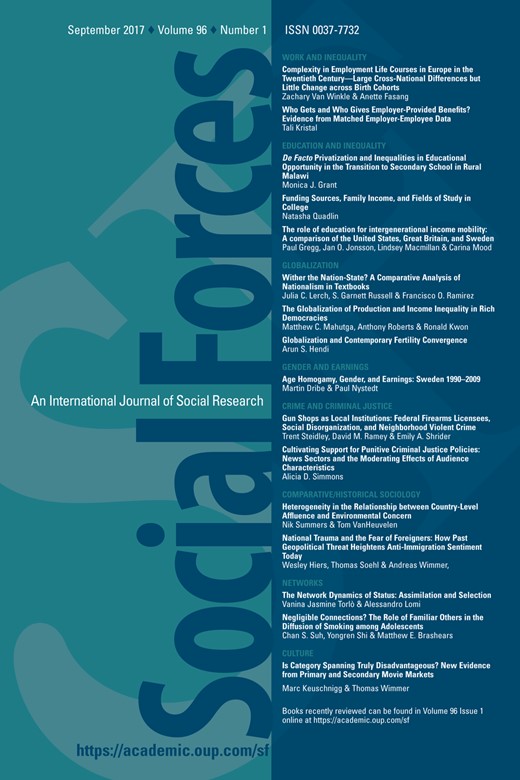-
Views
-
Cite
Cite
Zachary Van Winkle, Anette Fasang, Complexity in Employment Life Courses in Europe in the Twentieth Century—Large Cross-National Differences but Little Change across Birth Cohorts, Social Forces, Volume 96, Issue 1, September 2017, Pages 1–30, https://doi.org/10.1093/sf/sox032
Close - Share Icon Share
Abstract
Whether employment life courses have become more unstable and complex across the twentieth century has been a prominent topic in academic and public debate. Yet, empirical evidence on longer-term employment trajectories and how they changed across cohorts beyond single-country analyses is sparse. In this paper, we propose a new methodological approach that includes measures developed in sequence analysis to summarize complexity in employment trajectories in a cross-classified multilevel model by cohort and country. This allows us to quantify and describe change in the complexity of employment trajectories across cohorts relative to variation across fourteen European countries. We use SHARELIFE data to analyze employment trajectories from age 15 to 45 for men and women born between 1918 and 1963. For these birth cohorts, findings show that change across cohorts is negligibly small, compared with a sizeable variation of complexity in employment trajectories across countries. Further, based on theoretical assumptions derived from the varieties of capitalism literature, we demonstrate that the cross-national variation in employment complexity can, in part, be accounted for by employment protection legislation and unemployment protection measured as wage replacement rates. We conclude that in accordance with other studies, our findings contradict the commonly held belief that employment trajectories have become much more unstable across the second half of the twentieth century. More generally, the proposed methodological approach is also promising to analyze complexity in life course trajectories in other areas of application.



